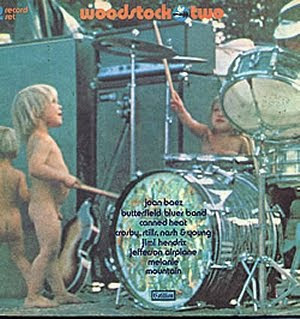
 After three fine and sadly overlooked records on the Southern label, Iowa native William Elliott Whitmore moves to the larger Anti Records imprint for number four, putting him in the same company as Tom Waits, Neko Case, and others that regularly rank high on the Americana heavy rotation list.
After three fine and sadly overlooked records on the Southern label, Iowa native William Elliott Whitmore moves to the larger Anti Records imprint for number four, putting him in the same company as Tom Waits, Neko Case, and others that regularly rank high on the Americana heavy rotation list.To deem Whitmore as merely an “Americana” artist is a disservice. This is roots music, barely a guitar string away from the same kind of songs that would have been prevalent at the start if the 20th century. Added to this, Whitmore still lives and works on his family farm in Lee County, a story that will most assuredly get some traction from people who want to milk his legitimacy and exploit his good-naturedness. Here’s the thing about Iowa though: we have a tendency not to be afraid of a hard days work and we know the moment you start belittling us as some backwash hicks with little regard for your big city perceptions. And here’s the thing about Whitmore: there’s a sense of credibility that flows not from his press bio, but from the first time you hear his voice.
To see him in a local bar is an opportunity to miss him. He blends in well, fitting in with the rest of the inked twenty-somethings with two-week old facial hair. But put banjo in his hands, a stool for a seat and a Pabst to quench his thirst and watch him transform into one of our country’s most distinctive talents. Trust me, I’ve tried on more than one occasion to discount his act with cynicism and distrust only to break down and admit that this young man is the real deal.
Of course, the ideal setting to see Whitmore is live, but in lieu of that (or if it’s the farming season and WEW can’t tour as he is too busy attending to agricultural needs) you’ll be forced to chose a recorded document, and there’s now a better opportunity with his new label for you to run into one.
For those new to the flock, Animals In The Dark is a fine place to start
Animals In The Dark starts with nothing more than a rhythm and Whitmore’s cigarette-addled voice, declaring mutiny on a ship that the Bush administration nearly ran into dry land. “He don’t need no water/Let the motherfucker burn” he judges on W2 during “Mutiny.” There are other political overtones scattered throughout Animals…something that’s unusual in his previous work…and they sound like the result of careful consideration, not the gut-check Libertarian values that finds its way into some of the wells of Whitmore’s neck of the woods.
With all but a few songs devoted to statehouse affairs, there are more that deal with rural observations and small town characters. Many have been in his set list for years (“Johnny Law” “Hell Or High Water”) and all are delivered with the same bare-bone arrangement that has been his bread and butter all along.
The presumed added budget afforded to him has made the mix at tad more defined, but by no means polished. WEW’s voice remains front and center, and when any band arrangements find their way into the recording, they’re well out of the way. There’s actually some possibilities found with that type of structure and it would be interesting to see if Whitmore utilizes full band recordings for later recordings.
Animals In The Dark marks the end of the death and redemption trilogy that encompassed his first three albums. There were brief moments of light that filtered through the darkness of those albums, but Animals shows more of it. It absolutely has its fill of dread and depression, but there’s more tenacity to address it, leading the listener to believe that the subjects within his songs have a real shot at overcoming their adversity. “Hard Times” details a brief snapshot of Whitmore’s past, from the great-granddad that took a ship to America from Germany to his railroad mechanic father, all of whom had less that ideal conditions to work from. “Hard times made us” he declares “and I would not change them for anything.” For a young man who just reached the ripe old age of 30, it’s refreshing to hear how there are still some out there that understand how hardship is a part of our overall existence. We can let misfortune consume us and allow it to lay havoc, or we can press on and grow strong from our difficulties.
Whitmore’s own story is filled with tribulation, but to see him perform and hear him throughout his catalog, you get the sense that he’s come to terms with the circle of life and has vowed to relish each moment that he’s presented with. Perhaps this outlook is a common characteristic among farmers, as they are acutely aware of the seasons and how vital each one is in life. They’re reminders that no matter how bad things are today, nature is not one to wait around for things to get better. Whitmore gets that, and even though Animals In The Dark represents a new season for himself, there’s no better time to get acquainted with the songs of his most recent harvest.
This review originally appeared in Glorious Noise.


















